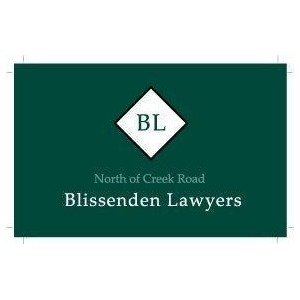Best Adoption Lawyers in Moonah
Share your needs with us, get contacted by law firms.
Free. Takes 2 min.
Free Guide to Hiring a Family Lawyer
List of the best lawyers in Moonah, Australia
About Adoption Law in Moonah, Australia
Adoption is a legal process whereby a person becomes the parent of a child who is not their biological child. In Moonah, Australia, the Department of Communities, Child Safety, and Disabilities Services oversees the application and approval of adoptions. Adoption laws are enforced and regulated by both the Australian government and the Tasmanian law where Moonah is located.
Why You May Need a Lawyer
Adoption is a complex legal process that involves several applications, agreements, and approvals. You may need a lawyer to guide you through this process and ensure that your interests and those of the child are best protected. This is particularly important given the complexity of the adoption laws and the legal requirements that need to be met. A lawyer can also assist in dealing with potential legal complications such as birth parent rights, interstate, or international adoptions.
Local Laws Overview
Under Tasmanian law, both single people and couples can apply to adopt a child. Applicants must be over 21 years old and must be at least 18 years older than the child. Consent of biological parents needs to be given in certain circumstances and in other cases may be dispensed by a court order. Children aged over 12 need to give their own consent to be adopted. Adoptions are supervised by the court system and an Adoption Order cannot be granted until the child has lived with the prospective adoptive parents for at least 12 months.
Frequently Asked Questions
1. Who can adopt a child?
Anyone over the age of 21 who passes the necessary background checks and meets the criteria set by the Department of Communities can potentially adopt a child in Moonah, Australia.
2. How long does the adoption process take?
The adoption process timeline can vary greatly from case to case. It largely depends on the individual circumstances surrounding the adoption as well as the availability of a suitable child for placement.
3. Can the biological parents regain custody after an adoption order is granted?
No. Once an adoption order is finalized, all legal rights, responsibilities, and ties between the child and the birth parents are permanently severed. The adoptive parents are the child's legal parents in all respects.
4. Can I adopt my partner's child?
Yes. In Moonah, it's possible to undertake a step-parent adoption where you can legally adopt your partner's child, provided you meet certain criteria and conditions.
5. Can international adoptions be done in Moonah?
Yes. International adoptions are possible and are subject to both Australian government regulation and the laws of the child's original country. It is a complex process and legal assistance is often necessary.
Additional Resources
The Department of Communities, Child Safety, and Disability Services is the main governmental body involved in adoptions in Moonah, Australia. Other valuable resources may include the Australian Institute of Family Studies (AIFS) and Australian Adoption Support Groups. Legal aid services can also offer practical assistance.
Next Steps
If you require legal assistance with adoption, it's strongly recommended to seek legal counsel. A lawyer specializing in family law or specifically in adoption matters can be instrumental in guiding you through the process. Consider reaching out to legal aid services or local law firms that specialize in family and adoption law.
Lawzana helps you find the best lawyers and law firms in Moonah through a curated and pre-screened list of qualified legal professionals. Our platform offers rankings and detailed profiles of attorneys and law firms, allowing you to compare based on practice areas, including Adoption, experience, and client feedback.
Each profile includes a description of the firm's areas of practice, client reviews, team members and partners, year of establishment, spoken languages, office locations, contact information, social media presence, and any published articles or resources. Most firms on our platform speak English and are experienced in both local and international legal matters.
Get a quote from top-rated law firms in Moonah, Australia — quickly, securely, and without unnecessary hassle.
Disclaimer:
The information provided on this page is for general informational purposes only and does not constitute legal advice. While we strive to ensure the accuracy and relevance of the content, legal information may change over time, and interpretations of the law can vary. You should always consult with a qualified legal professional for advice specific to your situation.
We disclaim all liability for actions taken or not taken based on the content of this page. If you believe any information is incorrect or outdated, please contact us, and we will review and update it where appropriate.








